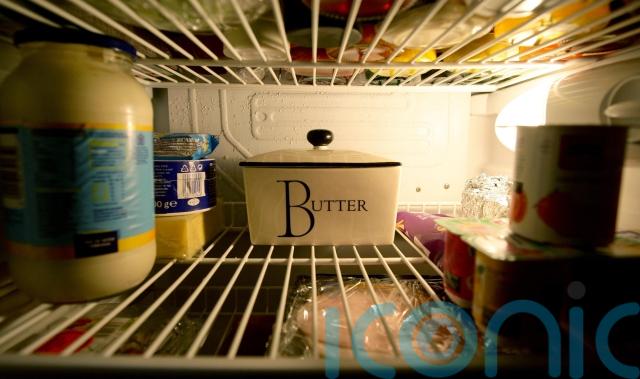
Half of Scots have eaten food past its use-by date in a bid to save cash, a new survey on the impact of the cost-of-living crisis has revealed.
Research carried out by Food Standards Scotland (FSS) also found almost three in 10 (29%) people have been doing so more often since April.
A total of 1,084 people across Scotland were questioned, with 540 saying they have eaten items after the use-by date.
As a result, FSS warned the cost-of-living crisis has the “potential to negatively impact public health”.
Jacqui McElhiney, head of science at FSS, said it is “concerning that so many people are adopting practices which could put them at increased risk of food poisoning”.
According to the research, 70% of people are more worried now about the rising cost of food than they were in April, with 27% describing themselves as “a lot more worried”, while 43% are “a bit more worried”.
Almost a quarter (24%) reported either having skipped meals or reducing portion sizes more often since April.
Meanwhile, 30% said they are buying meat less often, with 23% having cut back on fresh food and 24% buying fish less.
The survey also found two-fifths (41%) had changed cooking methods to try to save money on electricity – such as by swapping from cooking in the oven to on the hob or in a microwave.
One in 10 (10%) has altered the thermostat in their fridge to help them save money, with 2% having turned off power to their fridge altogether for a period of time.
Ms McElhiney said: “While we were expecting the results of the survey to demonstrate some behaviour changes in relation to how consumers are buying and preparing food, it’s concerning that so many people are adopting practices which could put them at increased risk of food poisoning.
“Perishable foods can become unsafe to eat when they are stored past their use-by date, especially when they are not kept chilled.
“Saving energy and avoiding food waste are always priorities, but we must also remember the importance of food safety. There is a range of helpful advice and tips available for consumers on the FSS website.

“This survey has shown us that the cost-of-living crisis is driving consumer behaviour with the potential to negatively impact public health.
“As the public sector body for food safety and standards in Scotland, we are here to help protect consumers from food safety risks.
“While we understand that this is only one part of a much larger scale issue and appreciate the predicament that many consumers face, it makes our own role in helping the people of Scotland to avoid the risk of food poisoning even more important.”
The research also shows 56% of people have eaten in cafes, restaurants and pubs less often since April, with a similar number (55%) having reduced the number of takeaways they consume.
Meanwhile, 45% reported buying snacks such as biscuits or crisps less often.
In its report, FSS said some of the changes being made could “have an impact on diet and nutrition, with around a quarter reducing their intake of fresh foods (23%) and fish (24%) and a similar proportion saying they have skipped meals or reduced portion sizes”.
However it added: “Some more positive outcomes are evident, with fewer wasting food, and fewer takeaways and snacks being consumed.”
Subscribe or register today to discover more from DonegalLive.ie
Buy the e-paper of the Donegal Democrat, Donegal People's Press, Donegal Post and Inish Times here for instant access to Donegal's premier news titles.
Keep up with the latest news from Donegal with our daily newsletter featuring the most important stories of the day delivered to your inbox every evening at 5pm.